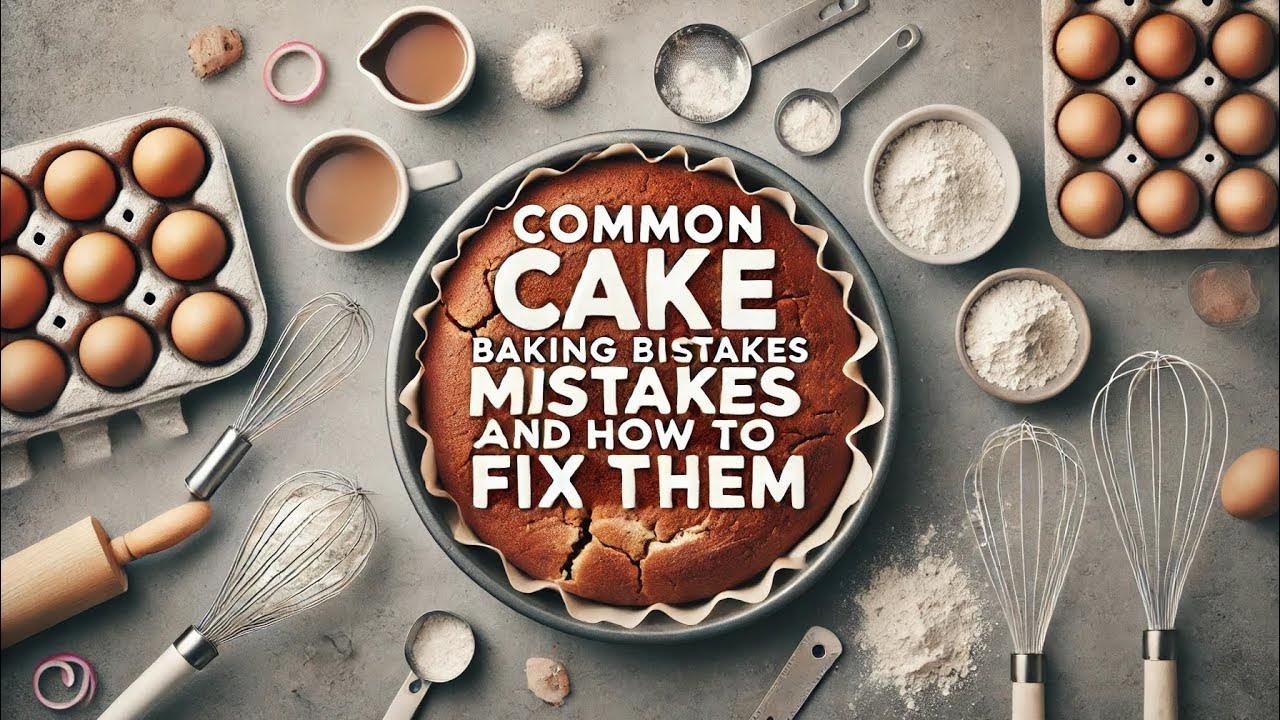Vegan baking opens up a world of creative possibilities, replacing traditional ingredients like eggs, milk, and butter with plant-based alternatives. Whether you’re new to veganism or a seasoned pro, this guide will provide essential tips and recipes to ensure your vegan bakes are every bit as delicious as their non-vegan counterparts.
1. Essential Ingredients for Vegan Baking
Switching to vegan baking means learning the best substitutes for common non-vegan ingredients:
Egg Replacements
- Flaxseed Meal: Mix 1 tablespoon of flaxseed meal with 3 tablespoons of water for a “flax egg.”
- Chia Seeds: Use the same ratio as flaxseed to create a chia egg.
- Applesauce: Replace one egg with ¼ cup of unsweetened applesauce for moisture.
- Banana: Mashed banana works as a binder, but adds flavor.
Milk Substitutes
- Use plant-based milks like almond, soy, oat, or coconut milk as a 1:1 replacement for dairy milk.
Butter Alternatives
- Replace butter with coconut oil, vegan margarine, or unsweetened applesauce for lower fat recipes.
Sweeteners
- Agave syrup, maple syrup, or coconut sugar are excellent plant-based sweeteners.
2. Tips for Perfect Vegan Bakes
- Understand Your Substitutes:
Each alternative has unique properties—experiment to find what works best for your recipe. - Don’t Overmix:
Without eggs, overmixing can make your batter dense. Mix until just combined. - Balance the Moisture:
Vegan recipes often need adjustments in liquid levels to ensure the right texture. - Add Leavening Agents:
Use baking powder and baking soda to achieve fluffiness without eggs. - Embrace Acidity:
Ingredients like apple cider vinegar or lemon juice react with baking soda to add rise and tenderness.

3. Vegan Baking Recipes to Try
a. Vegan Chocolate Cake
- Ingredients:
- 1 ½ cups all-purpose flour
- 1 cup sugar or coconut sugar
- ½ cup cocoa powder
- 1 teaspoon baking soda
- ½ teaspoon salt
- 1 cup almond milk (or other plant-based milk)
- ½ cup coconut oil
- 1 tablespoon apple cider vinegar
- 1 teaspoon vanilla extract
- Instructions:
- Preheat oven to 350°F (175°C). Grease a cake pan.
- Mix dry ingredients in a bowl.
- Add wet ingredients and stir until smooth.
- Pour batter into the pan and bake for 30–35 minutes.
b. Vegan Banana Bread
- Ingredients:
- 3 ripe bananas
- ⅓ cup melted coconut oil
- 1 teaspoon vanilla extract
- ½ cup sugar
- 1 ½ cups all-purpose flour
- 1 teaspoon baking soda
- Pinch of salt
- Instructions:
- Preheat oven to 350°F (175°C). Grease a loaf pan.
- Mash bananas and mix with coconut oil, vanilla, and sugar.
- Add dry ingredients and mix gently.
- Pour into the loaf pan and bake for 50–60 minutes.
c. Vegan Chocolate Chip Cookies
- Ingredients:
- 1 cup vegan butter
- ¾ cup brown sugar
- ¾ cup granulated sugar
- 2 teaspoons vanilla extract
- 2 tablespoons almond milk
- 2 ½ cups all-purpose flour
- 1 teaspoon baking soda
- ½ teaspoon salt
- 1 cup vegan chocolate chips
- Instructions:
- Preheat oven to 375°F (190°C). Line a baking sheet with parchment paper.
- Cream vegan butter and sugars. Add vanilla and almond milk.
- Mix dry ingredients in a separate bowl, then combine with the wet mixture.
- Fold in chocolate chips and scoop onto the baking sheet.
- Bake for 10–12 minutes.
4. Common Challenges in Vegan Baking
- Texture Issues: Vegan bakes can be dense; add leavening agents and avoid overmixing.
- Flavor Adjustments: Some substitutes, like bananas, may alter the taste. Balance with complementary flavors.
- Binding Difficulties: Experiment with different egg substitutes based on the recipe.
5. Why Choose Vegan Baking?
- Health Benefits: Many recipes use less fat and sugar.
- Environmental Impact: Vegan baking reduces reliance on animal products, lowering your carbon footprint.
- Inclusivity: Vegan treats cater to a variety of dietary preferences and allergies.
Conclusion
Vegan baking is a delightful journey of discovery, offering opportunities to create plant-based versions of classic treats. With the right substitutes, techniques, and recipes, you can bake delicious and satisfying desserts that everyone will enjoy—vegan or not.




